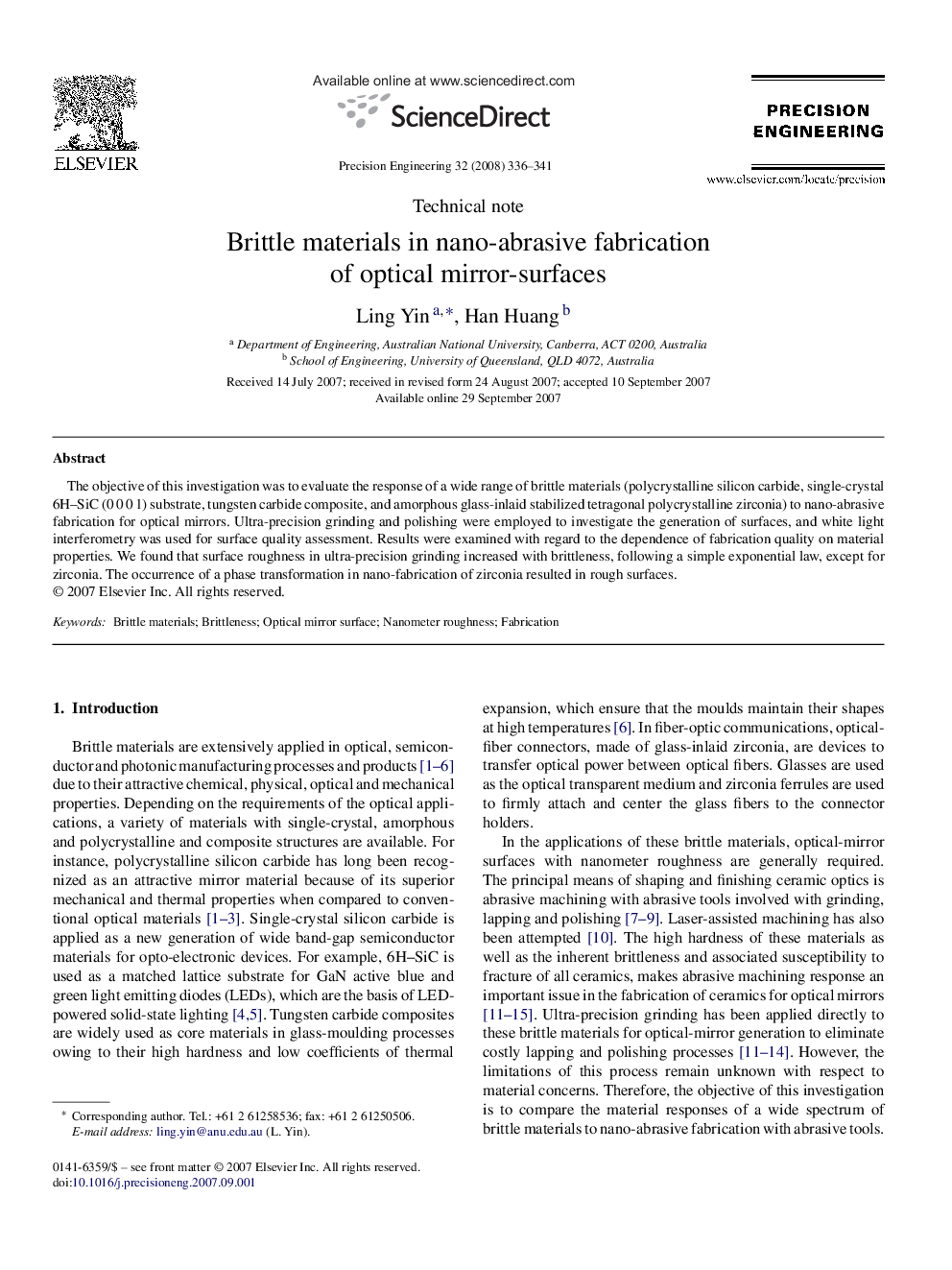| Article ID | Journal | Published Year | Pages | File Type |
|---|---|---|---|---|
| 803997 | Precision Engineering | 2008 | 6 Pages |
The objective of this investigation was to evaluate the response of a wide range of brittle materials (polycrystalline silicon carbide, single-crystal 6H–SiC (0 0 0 1) substrate, tungsten carbide composite, and amorphous glass-inlaid stabilized tetragonal polycrystalline zirconia) to nano-abrasive fabrication for optical mirrors. Ultra-precision grinding and polishing were employed to investigate the generation of surfaces, and white light interferometry was used for surface quality assessment. Results were examined with regard to the dependence of fabrication quality on material properties. We found that surface roughness in ultra-precision grinding increased with brittleness, following a simple exponential law, except for zirconia. The occurrence of a phase transformation in nano-fabrication of zirconia resulted in rough surfaces.
